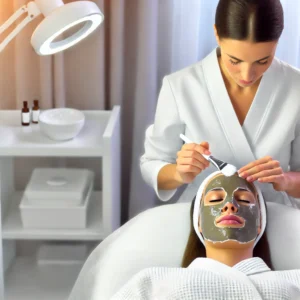A night guard, also known as a dental night guard, mouth guard, or occlusal guard, is a dental appliance worn over the teeth while sleeping to protect against the harmful effects of teeth grinding (bruxism) and clenching. These guards are custom-made or available over-the-counter and are designed to provide a cushion between the upper and lower teeth, helping to prevent damage and alleviate symptoms such as jaw pain, headaches, and tooth wear.
Reasons for Using a Night Guard
- Bruxism (Teeth Grinding): Many people grind their teeth at night, often without realizing it. This condition, known as bruxism, can lead to a range of dental issues, including worn or fractured teeth, enamel erosion, and increased tooth sensitivity.
- Clenching: Some individuals clench their jaws while sleeping, putting pressure on the teeth, gums, and jaw joints (TMJ). This can result in pain, muscle fatigue, and TMJ disorders.
- Preventing Tooth Damage: By providing a protective layer, night guards prevent teeth from grinding directly against each other, thus minimizing wear, chips, or fractures.
- Alleviating Jaw Pain and TMJ Disorders: Night guards help reduce tension and pressure in the jaw, which can alleviate symptoms of TMJ disorders, such as jaw pain, clicking, and headaches.
Types of Night Guards
- Soft Night Guards: Made of a soft, flexible material, these guards are typically used for people with mild bruxism. They are comfortable to wear but may not be as durable for individuals who grind their teeth heavily.
- Hard Night Guards: These are made from a more rigid plastic material and are ideal for individuals with severe bruxism or heavy teeth grinding. They offer better durability and a snug fit.
- Dual-Laminate Night Guards: These guards combine a soft inside layer for comfort with a hard outside layer for durability, making them suitable for moderate to severe bruxism.
- Custom vs. Over-the-Counter:
- Custom Night Guards: Custom-made night guards are created by a dentist based on a mold of your teeth, ensuring a precise fit and maximum comfort. They are generally more effective but also more expensive.
- Over-the-Counter Night Guards: These are available at pharmacies and can be purchased without a prescription. They are usually “boil-and-bite” types that you can mold at home. While less expensive, they may not fit as well as custom guards and may be less effective.
How a Night Guard Works
A night guard acts as a physical barrier between the upper and lower teeth, preventing them from grinding against each other. This reduces the risk of damage to the teeth, as well as the tension in the jaw muscles and the temporomandibular joint (TMJ). The guard absorbs some of the forces created by grinding and clenching, helping to distribute the pressure evenly and reducing muscle fatigue.
The Process of Getting a Custom Night Guard
- Dental Examination: Your dentist will first perform a thorough examination to determine if a night guard is necessary. This may involve evaluating your symptoms, inspecting wear patterns on your teeth, and assessing the health of your jaw joints.
- Impression of Teeth: If a night guard is recommended, your dentist will take an impression of your teeth using a mold or digital scanner. This impression will be used to create a custom-fitted night guard.
- Fabrication: The impression is sent to a dental lab, where the custom night guard is fabricated from high-quality materials to fit your teeth precisely.
- Fitting: Once ready, your dentist will fit the night guard and make any necessary adjustments to ensure comfort and proper protection.
Signs You Might Need a Night Guard
- Waking Up with Jaw Pain or Headaches: If you frequently wake up with a sore jaw or headaches, this could be due to bruxism or clenching during sleep.
- Teeth Grinding Awareness: If you notice that you grind your teeth during the day or your partner hears it at night, you may benefit from a night guard.
- Tooth Wear or Sensitivity: Excessive wear on the biting surfaces of your teeth, chipped enamel, or increased sensitivity may indicate teeth grinding or clenching.
- TMJ Pain: If you experience pain, clicking, or locking in the jaw joint, a night guard may help alleviate these symptoms by reducing pressure on the TMJ.
Benefits of Using a Night Guard
- Protects Teeth: Night guards protect against wear, chipping, and other damage caused by grinding and clenching.
- Reduces Jaw Tension: The cushioning effect helps reduce tension in the jaw muscles, preventing soreness and fatigue.
- Prevents TMJ Disorders: By minimizing pressure on the temporomandibular joint, night guards help prevent or alleviate symptoms of TMJ disorders.
- Improves Sleep Quality: Relieving symptoms like headaches and jaw pain can lead to more restful sleep, which positively impacts overall well-being.
Caring for Your Night Guard
- Clean Daily: Rinse the night guard with cool water after each use. Brush it with a toothbrush and non-abrasive toothpaste to remove any debris or bacteria.
- Avoid Hot Water: Do not use hot water to clean the guard, as it may warp the plastic and affect the fit.
- Store Properly: Keep the night guard in its protective case when not in use to prevent damage and bacterial growth.
- Check Regularly: Inspect the night guard regularly for signs of wear or damage. If it becomes worn out or uncomfortable, visit your dentist for a replacement or adjustment.
Potential Side Effects
- Initial Discomfort: It may take a few nights to get used to wearing a night guard, and some people experience initial discomfort or increased saliva production.
- Fit Issues: A poorly fitting night guard can cause discomfort, irritation, or even worsen bruxism symptoms. This is why a custom-fit night guard is generally recommended for optimal results.
- Gag Reflex: Some individuals may find it challenging to wear a night guard due to gagging, especially if the guard is too bulky. Custom guards are often thinner and more comfortable.
Custom vs. Over-the-Counter Night Guards: Which to Choose?
- Custom Night Guards: These provide the best fit, comfort, and protection. They are made from durable materials and are ideal for individuals with moderate to severe bruxism.
- Over-the-Counter Night Guards: These are more affordable but may lack the precise fit and comfort of a custom-made guard. They are suitable for mild cases of bruxism or those looking for a temporary solution.
A night guard is an effective way to protect your teeth and jaw from the harmful effects of teeth grinding and clenching, promoting better oral health and relieving symptoms like jaw pain and headaches. If you suspect that you grind or clench your teeth at night, speak with your dentist about whether a night guard is the right solution for you. Proper use of a night guard can lead to healthier teeth, improved sleep, and reduced discomfort, making it an important tool for maintaining good oral health.



